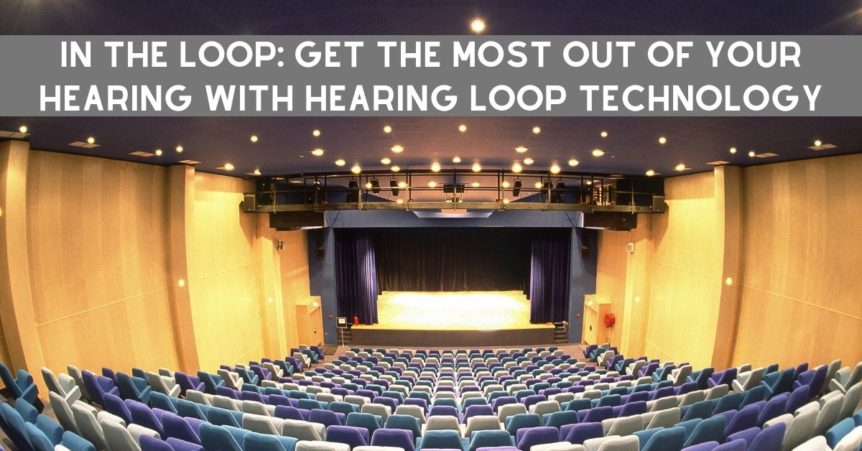Sometimes even with the best of hearing aid models, you may need a little extra help in certain environments with background noise. There also may be certain environments that are so large, with lots of space that would cause echoing, that you may need a little extra something. You can use a hearing loop with your hearing aids. You can get information about hearing loops at Neighborhood Hearing Aid Centers. The loop or audio induction loop as it is sometimes called, is designed to be used with hearing aids, not as a stand-alone hearing enhancement.
Neighborhood Hearing Aid Centers are your one-stop shop for hearing evaluations, hearing aids and assistive hearing devices. Our professional staff at all locations are dedicated to helping you start living better with better hearing. Our follow-up policies mean you will be able to use your hearing aids to the fullest as well as using assistive hearing devices. Here’s some information about the loop and what it can do for you.
What is a Hearing Loop?
A hearing loop is actually a sound system. It provides a wireless, magnetic signal that is picked up by your hearing aid when you set it to the “T” for telecoil setting. The hearing loop is a microphone which will pick up sounds, of course, and an amplifier which processes the sounds and then there is a loop cable which acts as an antenna. So, you can place the loop cable in a discreet area in a meeting room, a church, under a counter if you are working at an establishment with a counter and it acts as an antenna that sends the processed sound to your hearing aids.
At retail or perhaps restaurant locations where a hearing-impaired population might be concentrated, you would see a small placard saying an induction device has been installed. Many public establishments like museums as well as historic sites here and in Europe have loop cables installed so you can use your hearing aids with assistive loop technology. Houses of worship are routinely installing induction loops around the perimeter of the worship area as well as in fellowship areas to help individuals who are hearing impaired.
Hearing Loop Benefits
Having a hearing loop available means you can concentrate on specific sounds, conversations and it reduced background noise. There is no need for headsets or receivers if you are using a loop. Before this technology was available, the hearing impaired might have to sit with headphones on during presentations to be able to hear.
Sound goes directly into your hearing aids if there is loop technology available in an area and it is inconspicuous and can be used by anyone with a compatible hearing aid. Most hearing aid models are compatible. It is cost effective because any number of users can be on the loop at one time. You get quality sound because the processors in your hearing devices are already set to your personal preferences.
The loop technology provides a cleaner option for venues that must be Americans with Disability compliant. Previously they would have had to give out earbuds for the hearing impaired to use with specific devices or give out headsets. Having individuals use loop technology is a lot more sanitary! Loop technology is universal. You can go to a tourist attraction in France or Montana and be able to use loop technology.
Hearing Loop Questions
Are you hearing aids compatible? If your hearing aid has a “T” setting, this is where the loop function would be. You can also go on the manufacturer’s website and look or, the staff at a Neighborhood Hearing Aid Center can help you out with that question. Does it work with a cochlear implant? It depends on the processor model in the implant.
Can I get a hearing loop for the house? Sure, we can help you contact the right person to find out what size you would need for the room you want the loop in. Where are loops usually located? Churches, theaters, hospitals, some shopping centers, banks and even coffee shops have loops installed. There is a sign posted letting you know if loop technology is available.
Ask Us
The friendly and professional staff at Neighborhood Hearing Aid Centers will be happy to answer any additional questions you might have. We want you to use your hearing aids to get the best results.

